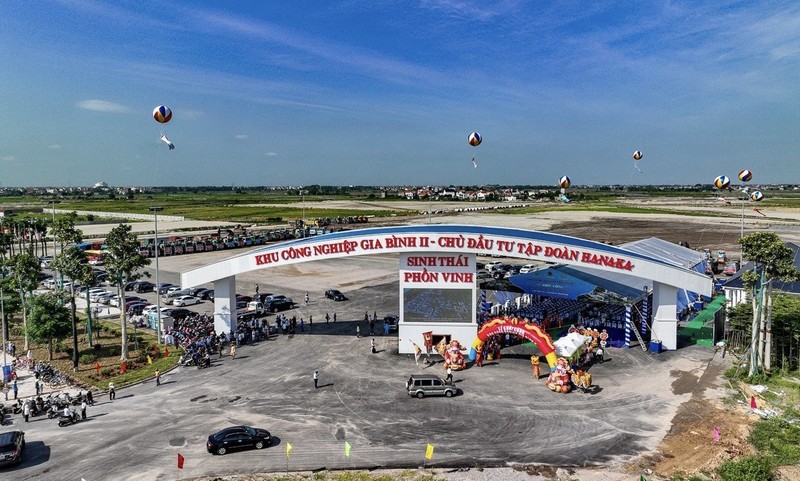Perfecting policies for industrial park development
Dr. Can Van Luc, economist, stated that the existing policy on industrial parks does not yet assure stability, consistency, or synchrony, and is also not entirely comprehensive.
Issues with Policies and Planning
According to Mr. Luc, in terms of policy, several regulations of Decree 35/2022/ND-CP, dated May 28, 2022, are exclusively at the decree level and do not ensure companies' commercial autonomy. For example, if the infrastructure usage charge increases by more than 10%, the Industrial Park Management Board must be notified, and the Board reserves the right to review it. Or, when linking technical infrastructure across phased stages, if following stages have different investors, it is unclear who is accountable for technical and social infrastructure.

Regarding planning, the quality of industrial park development planning is still low and has not received proper attention, such as lack of a comprehensive, long-term vision; the planning is rather scattered according to administrative boundaries and does not closely follow the realities and strengths of each locality; the time for planning approval is prolonged and complex.
The development of ecological industrial parks is limit ed; most industrial parks are currently developed according to a pure industrial concentration model (except for some parks in Binh Duong, Bac Ninh, Hai Phong, Hai Duong, Ba Ria - Vung Tau...).
Regarding industrial park investment incentive policies, Dr. Can Van Luc states that they are ineffective in directing investment flows. Some investment incentive policies remain vague; incentives are not uniform, overlapping, lack stability, and are hard to predict; and the procedures to access incentives are complicated.
According to the draft mechanism for encouraging rooftop solar power development, installing rooftop solar power in industrial parks will also not receive incentives.
Especially, the land clearance process still faces many difficulties, mostly behind schedule. The reasons include increasingly limit ed land resources, people not agreeing with the compensation price, the compensation plan not being truly reasonable, adequate, and transparent, the local government’s involvement not being decisive, missing the core issues, or some people being reluctant while needing the agreement and unity of 100% of households.
Furthermore, investment and construction costs remain high. According to the General Statistics Office, the price index of construction materials in 2021, 2022, and 2023 increased by 6.4%, nearly 7%, and 0.05% compared to the previous year, respectively.
Increasingly Fierce Competition
Moreover, Mr. Luc also mentions that the source of capital for industrial park development still relies heavily on external sources. Currently, the state budget's support for industrial park infrastructure development is low compared to the demand (in the mid-term public investment plan 2016-2020, the allocated capital only met 53% of the demand).

Mr. Luc believes that the investment period and payback time span many years, hence relying heavily on credit sources and corporate bonds, making the need for medium- and long-term loans very significant.
Additionally, land pricing has faced many difficulties lately, as the amendment of Decree 44 is slow and the fear of responsibility still occurs, making access to credit capital more difficult. At the same time, the stagnation of the corporate bond market recently somewhat affects the ability of industrial real estate businesses to access capital.
The competition to attract FDI from countries in the region (Indonesia, Thailand, Malaysia...) is increasingly fierce, especially in the context of the global minimum tax application from the beginning of 2024...
In proposing recommendations and solutions, Dr. Can Van Luc suggests that it is necessary to soon pass the Land Law, the amended Law on Credit Institutions, amend Decree 44 on land pricing, issue timely and quality decrees, circulars, etc.
For industrial park investors, Mr. Luc emphasizes that when making policy recommendations, they need to be accurate, hit the mark, and come with accompanying solutions; decisively restructure operations and products; diversify capital sources, aim for greater transparency and professionalism; pay attention to risk management, better meet requirements for the environment, safety, industrial park ecosystems…"








